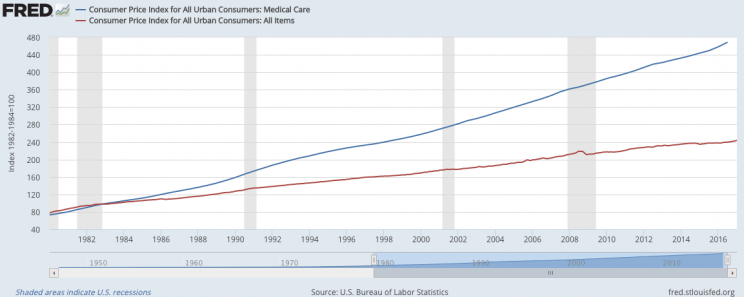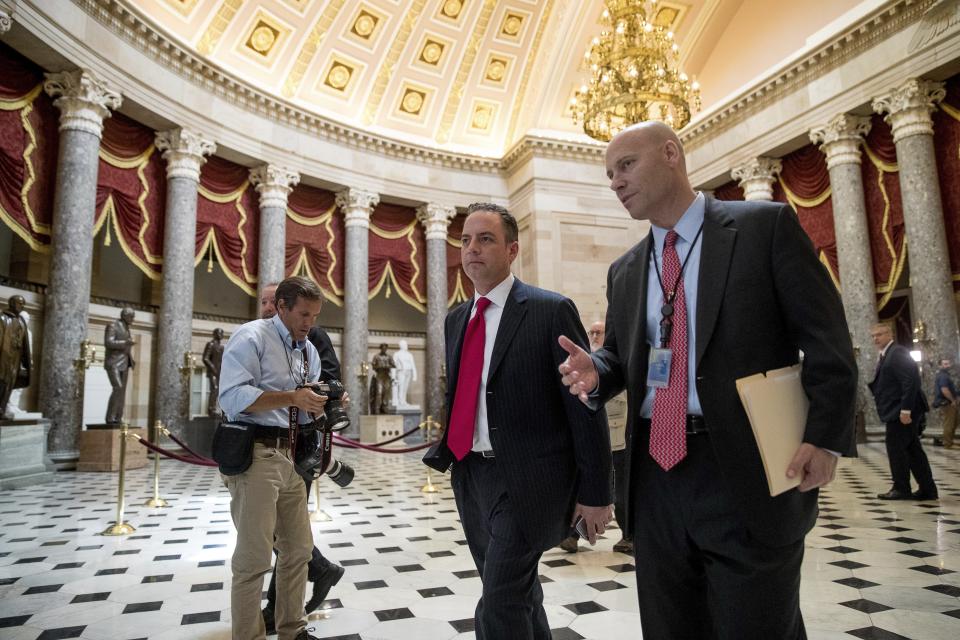The new Trumpcare bill is a self-made trap
President Obama probably didn’t expect this, but when he signed a sweeping health-reform bill in 2010—the Affordable Care Act, aka Obamacare—he slapped his name on every problem in the nation’s dysfunctional health care system. Whoops.
President Trump is on the verge of doing the same thing. At his behest, his Republican frenemies in the House of Representatives have passed a hastily crafted bill to repeal portions of Obamacare and replace them with new measures that would change the way many people get healthcare, without making any notable improvements. Trump claims this is a major legislative victory, showing he can get big things done. But it’s more likely to end up as a liability for Trump and the GOP—perhaps a big one that could cost them Congressional seats in the 2018 midterm elections.
The GOP bill, known as the American Health Care Act, has only passed the House, and may never get through the Senate in anything resembling its current form. So it’s still a long way from becoming law. But the ACHA now stands as Trump’s healthcare plan, and among other things, it would raise premium costs for older enrollees, scale back Medicaid coverage for poor adults, and make it harder for people with pre-existing conditions to get affordable coverage.
Republicans defend their bill by pointing out it would end the unpopular requirement for everybody to have insurance, along with the penalty for people who don’t. It would also eliminate taxes on the wealthy that Obamacare imposed, and give states more control over health plans in their state, while Washington backs off. In that regard, they say, it constitutes a victory for small(er)-government conservatives.
That may be, but defenders of the Trumpcare bill are overlooking a giant problem. Healthcare costs have been rising far faster than inflation for 30 years, eating more and more of the family budget. That was a problem long before Obamacare, and it will continue to be a problem for a long time to come. This chart spells it out:

Many people struggling with soaring premiums, deductibles, co-pays and other onerous costs blame Obamacare for their woes, even though Obamacare, if anything, put a lid on total outlays for newly insured Americans. Obamacare, on its own, did little to push overall costs higher, yet constant demagoguing by critics of the law basically worked: It convinced people that if rising costs and a new law seem to happen at the same time, then the new law must be the cause of their problems.
Doesn’t address fundamentals of higher costs
Trump will become the target of the same criticism if Trumpcare passes, and probably even if it doesn’t. The GOP bill doesn’t do anything new to address the fundamental problems pushing up costs: an opaque pricing system, too many middlemen, the overuse of care by some consumers, and many other inefficiencies. There’s every reason to think costs will continue to devour family budgets under the GOP plan, (which at least doesn’t claim to be “affordable,” like Obama’s plan did). Trump, rather than Obama, will now get the blame for a problem neither president created.

Another problem for Trump and the GOP: Trumpcare will be just as vulnerable to demagoguery as Obamacare, maybe more so. It seems evident the AHCA will limit coverage options for some people, and probably reduce the overall number of people with health insurance. There will inevitably be a cavalcade of horror stories—people who died or suffered grievously because of changes delivered by Trump. The president seems to think he’s immune from the sort of backlash that brought Obama’s Democrats crushing midterm losses after Obamacare passed in 2010. Good bet that is misplaced confidence.
Here’s one telling portent of Trumpcare’s future: AARP hates the plan and is telling its 38 million members to rally against it. AARP, which represents older Americans, may be the most potent voting bloc in America, and it’s certainly a big reason politicians are scared to death of trimming Medicare or Social Security benefits, even though both programs are headed toward insolvency. AARP says the GOP plan would “undermine Medicare” and threaten “massive premium increases for people with preexisting health conditions.” It’s hard to think of a development that runs more counter to Trump’s pledge to help the “forgotten men and women” of America.
The best outcome for Trump, in fact, might be passage of the AHCA in the House—allowing him to claim a desperately needed legislative “accomplishment”—followed by defeat in the Senate and a denouement that allows him to move on to something less toxic, such as an infrastructure program. The US healthcare system is unkind to politicians who try to control it. Trump should stop begging for punishment.
Confidential tip line: rickjnewman@yahoo.com
Read more:
Rick Newman is the author of four books, including Rebounders: How Winners Pivot from Setback to Success. Follow him on Twitter: @rickjnewman.

